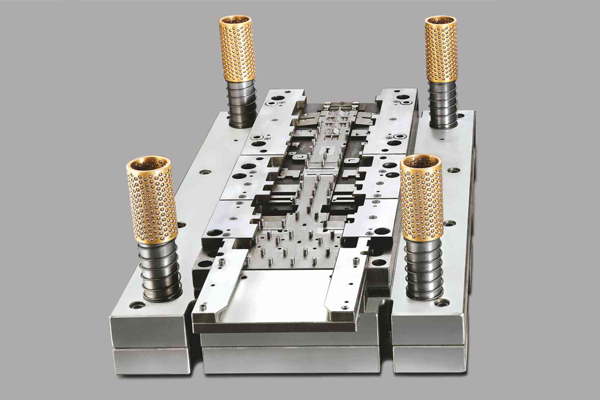Exploring the Impact of Metal Stamping on Various Industries
Metal stamping is a manufacturing process that involves cutting, shaping, and forming metal sheets or coils into various parts and components. It utilizes specialized equipment such as dies and presses to create precise shapes and designs with high efficiency and accuracy.
In recent years, metal stamping has become an essential process in various industries due to its versatility and cost-effectiveness. In this article, we will explore the impact of metal stamping in different industries and how it has revolutionized the manufacturing process.
Automotive Industry
The automotive industry is one of the leading users of metal stamping. From car body panels to engine components, metal stamping plays a crucial role in producing high-quality and durable parts for vehicles. With the increasing demand for lightweight and fuel-efficient cars, metal stamping has become even more vital as it allows for the production of intricate and lightweight components.
Moreover, metal stamping also ensures consistency and precision in the manufacturing process, resulting in better performance and safety of vehicles. The use of advanced technologies like computer-aided design (CAD) software and robotic automation has further enhanced the efficiency and accuracy of metal stamping in the automotive industry.
Electronics Industry
The electronics industry is another sector that heavily relies on metal stamping for producing various parts and components. From smartphones and laptops to household appliances, metal stamping enables the production of small and intricate parts with high precision. The use of specialized materials like copper, aluminum, and stainless steel in metal stamping also ensures the durability and conductivity required in electronic devices.
Additionally, metal stamping allows for the mass production of components, making it ideal for meeting the high demand in the electronics industry. With advancements in technology and materials, metal stamping has also enabled the production of smaller and thinner parts, contributing to the trend of miniaturization in electronics.
Medical Industry
The medical industry has also benefitted greatly from metal stamping. The use of precision metal stamping for medical devices has significantly improved the quality, efficiency, and safety of healthcare. From surgical tools to implantable devices, metal stamping allows for the production of custom-made medical components with high accuracy and consistency.
Moreover, the use of biocompatible materials in metal stamping ensures that the produced parts are safe for use in medical applications without causing any adverse reactions in the body. With advancements in technology, metal stamping has also made it possible to produce complex medical devices with intricate designs and shapes.
Aerospace Industry
The aerospace industry is another sector that has seen a significant impact of metal stamping. From aircraft structures to engine components, metal stamping plays a crucial role in the production of lightweight and high-strength parts for airplanes and spacecraft. The use of specialized materials like titanium and nickel alloys in metal stamping enables the production of parts that can withstand extreme temperatures and stresses. This makes metal stamping a vital process in ensuring the safety and reliability of aerospace vehicles.
Construction Industry
The construction industry has also embraced metal stamping for its various benefits in producing building materials and components. From roofing and siding materials to structural elements, metal stamping allows for the production of durable and cost-effective parts that can withstand harsh environmental conditions. The use of specialized coatings and finishes in metal stamping also enhances the durability and aesthetic appeal of building materials.
Moreover, metal stamping enables the customization of building components, making it possible to cater to the unique design and size requirements of different construction projects. With increased awareness towards sustainable and energy-efficient buildings, metal stamping has also enabled the production of eco-friendly materials that contribute to green construction practices.
In conclusion, metal stamping has proven to be a highly versatile and crucial process in various industries, revolutionizing the way manufacturing is done. With continuous advancements in technology and materials, metal stamping is expected to continue playing a significant role in driving innovation and progress in different sectors.
So, it is safe to say that metal stamping has truly made its mark as an essential process in modern-day industrial production.




